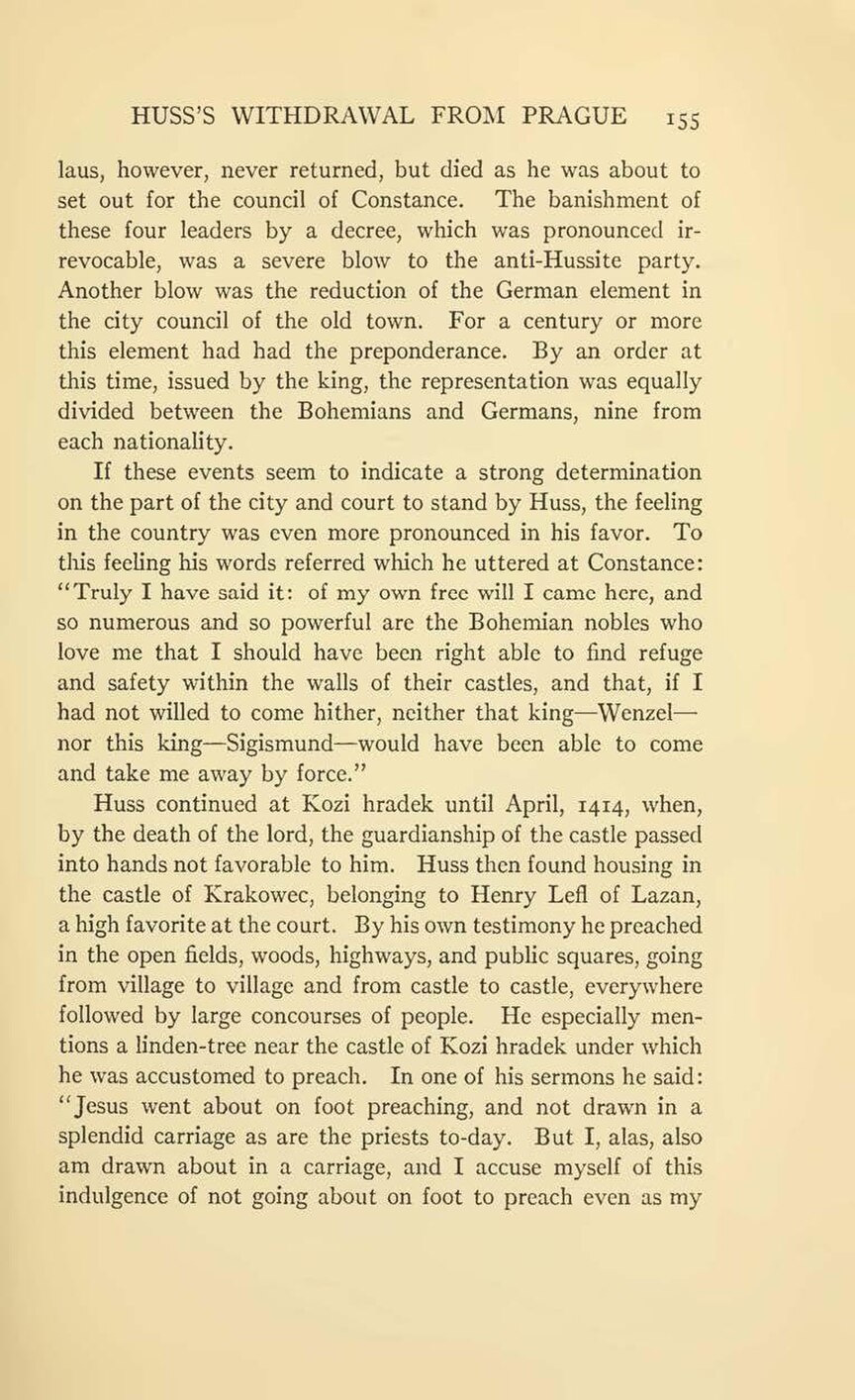laus, however, never returned, but died as he was about to set out for the council of Constance. The banishment of these four leaders by a decree, which was pronounced irrevocable, was a severe blow to the anti-Hussite party. Another blow was the reduction of the German element in the city council of the old town. For a century or more this element had had the preponderance. By an order at this time, issued by the king, the representation was equally divided between the Bohemians and Germans, nine from each nationality.
If these events seem to indicate a strong determination on the part of the city and court to stand by Huss, the feeling in the country was even more pronounced in his favor. To this feeling his words referred which he uttered at Constance: “Truly I have said it: of my own free will I came here, and so numerous and so powerful are the Bohemian nobles who love me that I should have been right able to find refuge and safety within the walls of their castles, and that, if I had not willed to come hither, ncither that king—Wenzel— nor this king—Sigismund—would have been able to come and take me away by force.”
Huss continued at Kozi hradek until April, 1414, when, by the death of the lord, the guardianship of the castle passed into hands not favorable to him. Huss then found housing in the castle of Krakowec, belonging to Henry Lefl of Lazan, a high favorite at the court. By his own testimony he preached in the open fields, woods, highways, and public squares, going from village to village and from castle to castle, everywhere followed by large concourses of people. He especially mentions a linden-tree near the castle of Kozi hradek under which he was accustomed to preach. In one of his sermons he said: “Jesus went about on foot preaching, and not drawn in a splendid carriage as are the priests to-day. But I, alas, also am drawn about in a carriage, and I accuse myself of this indulgence of not going about on foot to preach even as my
